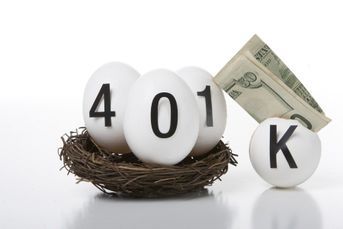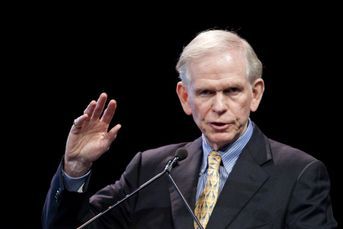Berkowitz scores again as wagers on insurers pay off
Fairholme Fund's Bruce Berkowitz scored last week when shares of insurer MBIA soared. After a 'horrible' 2011, the fund manager is hot again, beating 98% of his rivals.
Bruce Berkowitz, whose bets on financial stocks helped him beat 99 percent of rivals last year after what he called a “horrible” 2011, made about $140 million as shares of mortgage insurer MBIA Inc. (MBI) surged following a legal settlement with Bank of America Corp. (BAC)
MBIA will get about $1.7 billion as part of a deal to end five years of litigation against the bank and its Countrywide unit over claims of defective securitized mortgage loans, the Armonk, New York-based company said last week in a statement. MBIA shares rose 45 percent to close at $14.29 in New York trading. Berkowitz’s firm owned 31.4 million shares of MBIA as of March 31, according to data compiled by Bloomberg.
Berkowitz, who was named Morningstar’s domestic stock manager of the decade in 2010, has made a big bet on insurance companies and financial stocks with about 55 percent of his fund’s assets in such shares as of Nov. 30, according to data compiled by Bloomberg. Berkowitz’s $7.8 billion Fairholme Fund has surged 20 percent this year to beat 98 percent of similarly managed funds after gaining 36 percent in 2012 and beating 99 percent of rivals.
Berkowitz, 54, got another boost as shares of his largest holding, American International Group (AIG), rose after the company reported better-than-expected earnings last week, bringing its gain since May 1 to 10 percent. Shares of AIG climbed 2.2 percent to $45.48 in New York trading. Berkowitz’s Miami-based Fairholme Capital Management LLC owns more than 85 million AIG shares, making him the largest shareholder in the New York-based firm.
AIG Bailout
AIG, which repaid a bailout last year, posted first-quarter profit that beat analysts’ estimates as results improved at the property-casualty operation. AIG shares have gained 29 percent this year.
Berkowitz accumulated financial stocks in 2010, reasoning that as the U.S. economy improved, banks and insurers would rebound along with them. The bet hurt him in 2011 when his Fairholme Fund (FAIRX) fell 32 percent, trailing all his competitors, as financial stocks tumbled in response to economic troubles in Europe and a sluggish recovery in the U.S.
After AIG, the fund’s two largest positions are in Bank of America, the Charlotte, North Carolina-based bank that is up 11 percent in 2013, and Sears Holdings Corp. (SHLD), the Hoffman Estate, Illinois-based retailer that’s up up 26 percent this year.
In a February interview, Berkowitz said he was moving beyond mutual funds as he seeks to lock in investors’ capital for longer and avoid rapid deposits and withdrawals that make it difficult to hold onto investments over longer periods. The fund suffered redemptions in 2011 after investors pulled their money in response to subpar results. Berkowitz did not return a call seeking comment.
Berkowitz has also bet on the debt of companies including MBIA and Sears through his Fairholme Focused Income Fund, which invests in cash-generating securities. He wrote in a letter to investors in February that a settlement between MBIA and Bank of America would “lift MBIA’s bonds.”
The Focused Income Fund has advanced 18 percent this year to beat 99 percent of similarly managed funds, according to data compiled by Bloomberg.
— Bloomberg News —
Learn more about reprints and licensing for this article.








